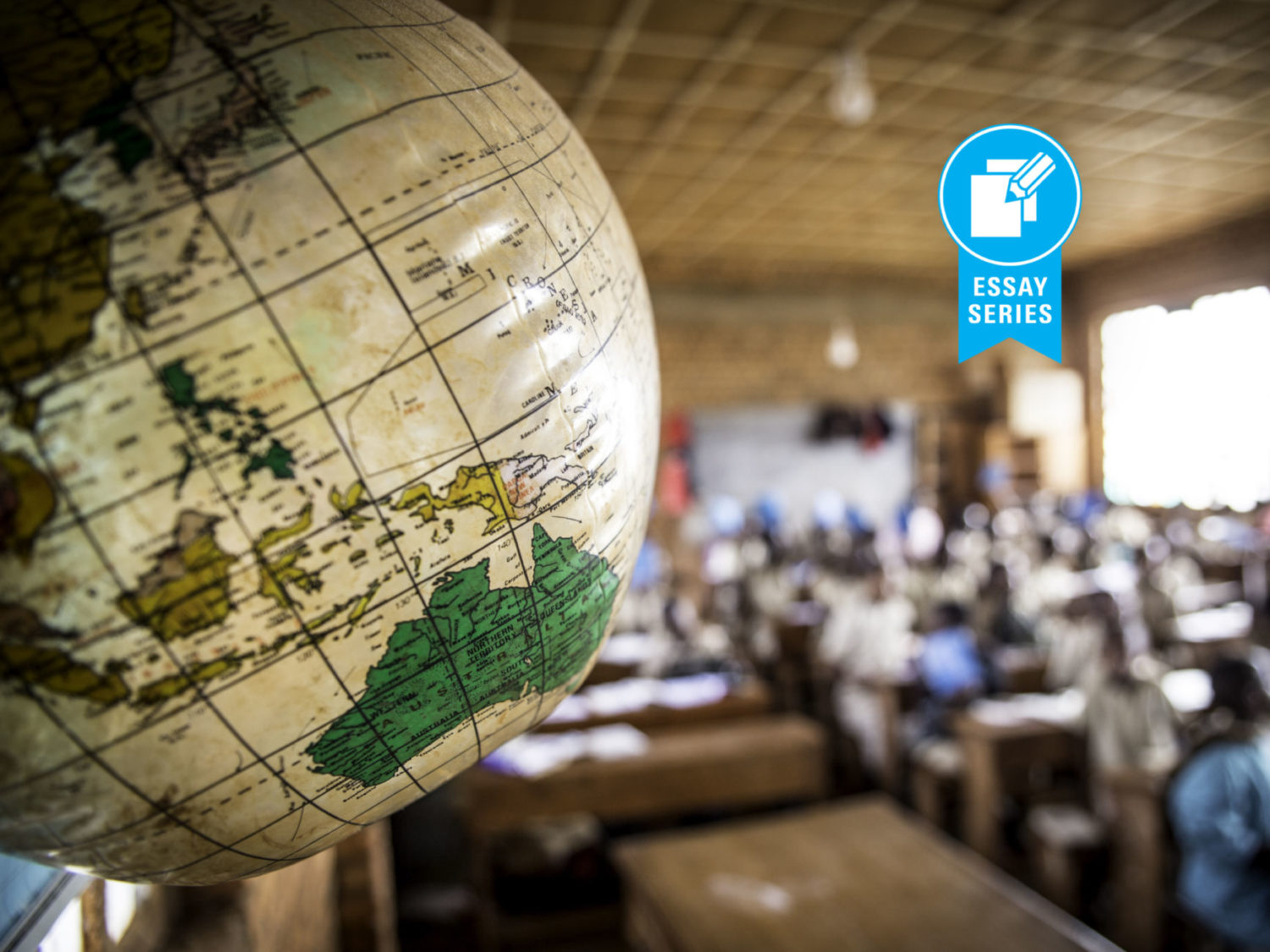
Global Britain Essays Table of Contents
COVID-19 has impacted and continues to disrupt children’s lives and compromise their most fundamental rights in many ways. But the pandemic provides a critical window of opportunity to create and re-imagine a healthier, safer, fairer, more equitable and inclusive world for today’s children and future generations. And Global Britain has a unique role to play in leading unprecedented and transformative action to deliver for the world’s children.
In this essay, Sabine Alkire describes that although COVID-19 has increased poverty countries are pivoting towards new investments in social protection, health systems and economy. With the right strategies in place, the UK could support a multisectoral approach to poverty that make this year a turning point towards ending acute poverty in all its forms.
In this essay, Mary Robinson is in discussion with Isabelle, Nkosi and Priyanka – three youth climate advocates. They reflect on the power of the energy and dynamism of the youth and experience of the older generation to tackle the climate crisis, and call for inclusive, sustainable and truly global efforts to build forward better post-pandemic.
In this essay, Elhadj As Sy makes a powerful and unequivocal plea for greater attention to and prioritisation of children in fragile settings who bear the brunt of the trauma and impacts of conflict in humanitarian responses and the peacebuilding agenda.
In this essay, Helen Clark and Awa Coll-Seck highlight the multiple and overlapping threats and challenges faced by today’s children, impacting their health and well-being and call for children to be put at the centre of all policies.
In this essay, Kitaoka Shinichi warns of the impact of COVID-19 on child hunger and the irreversible damage of malnutrition on children’s growth and development. In 2021, Japan hosts the Tokyo Nutrition for Growth Summit 2021, and Shinichi reiterates the role of the UK in tackling the global challenge of malnutrition.
In this essay, David Sengeh underlines the systemic barriers to access to education – poverty, gender, disability – and calls for radical inclusion approach to education, so that every child can get educated and learn the skills they need to become active citizens.
In this essay, Sanda Ojiambo highlights the role of businesses in tackling climate change, and the critical importance of bold action by the business community in creating a more equitable, healthier, safer and peaceful world for children.
In this essay, Lord Martin Rees discusses how science and technology and the active engagement of young people can help engineer an unprecedented move towards solving the world’s newly emergent threats.
In this essay, Kul Gautam calls for a multilateral approach to tackling global challenges and sets out a 4-point agenda for the UK, including placing children at the centre of international development cooperation and diplomacy to deliver for the world’s children now and in the future.
In this essay, Senator Casey reflects on the disproportionate impact of current trade rules on the most vulnerable, especially children, and calls for a commitment to turn trade into a force for good for children and their families.
In this essay, Mo Ibrahim puts the spotlight on the impact of COVID-19 on Africa which is facing a dramatic second wave. It reminds the UK of role of the continent in moving the world forward whether it is on digital economy, a greener planet or energy and infrastructure, and the importance of ensuring young people’s access to skills and training that will allow them to realise their potential.
As world leaders begin to shift their attention on a post-pandemic world, returning to “business as usual” is not an option. 2021 is a year of summits. But transformative commitments must be made and words turned into decisive actions. As the UK develops its new international development strategy and takes a prominent role on the global stage, it must ensure that “Global Britain” becomes a leader for child rights.

